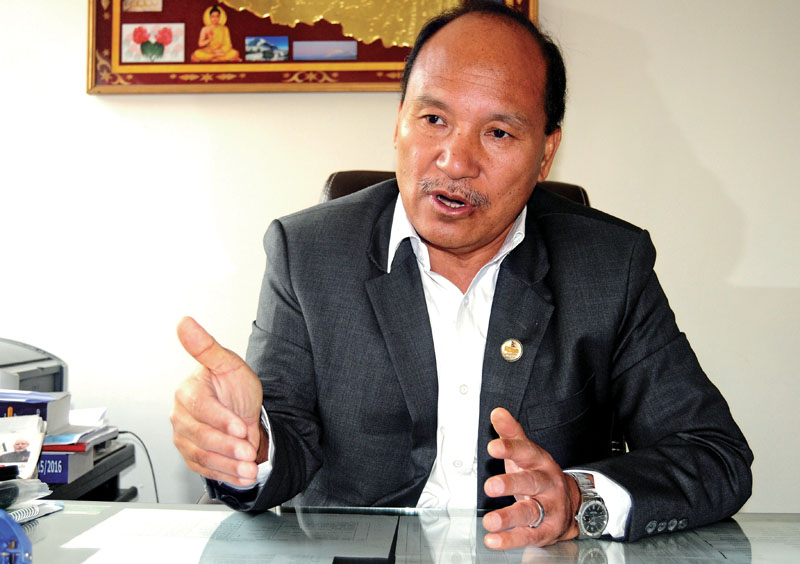Govt mulls subsidy hike for top export items
Kathmandu, May 8
Following consistent pressure from domestic traders, the government has initiated process to hike incentives for major exportable items of Nepal.
Ministry of Commerce (MoC) has recently recommended Ministry of Finance (MoF) to hike incentives on major exportable goods like carpet, pashmina and handicraft products through the upcoming budget for the fiscal 2017-18.
As per the Constitutional provision, MoF is gearing up to bring 2017-18 fiscal budget on May 28.
“We have recommended a hike in export incentives for major exportable goods in the upcoming budget to 15 per cent,” Minister for Commerce Romi Gauchan Thakali said, adding that good incentives for export-oriented industries will contribute to boost the export of domestic products.
Currently, such incentives extended to traders by the government have been limited to less than three per cent.
However, Minister Thakali said that MoC will strictly monitor domestic industries and traders on the effective use of the incentives provided by the government.
“As such incentives are intended to increase competitiveness of domestic products in the international market, industries and traders should best utilise this facility by enhancing the quality as well as quantity of products.
Welcoming this initiative of the government, the private sector said that an increase in incentives will boost the morale of traders and encourage them to increase export. “Nepali products are much costlier compared to foreign products in the international market. Hike in incentives for traders will make Nepali products competitive to some extent,” Pashupati Murarka, former president of the Federation of Nepalese Chambers of Commerce and Industry, said.
However, Murarka said that Nepali products cannot compete in the international market properly unless efforts are made to reduce production cost of goods in Nepal. “As a result of high labour cost, high electricity cost and number of taxes imposed by the government, production cost in Nepal is one of the highest in the world,” Murarka said. According to him, the government is imposing numerous indirect taxes on domestic industries that need to be refunded if the production cost of goods is actually to be brought down.
Meanwhile, Kiran Sakha, president of Nepal-USA Chamber of Commerce and Industry, said that the government should also simplify the procedures for industries and traders to get the incentive. “Though hike in export incentives is encouraging, there are tough legal procedures that need to be fulfilled. Consequently, majority of traders are not attracted towards the incentives,” he said.






